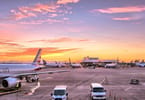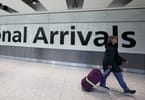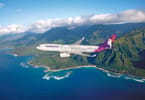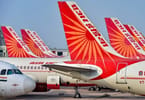Britain’s leading airline bosses have accused the government of using their industry as a political pawn in the national identity card debate by forcing aviation workers to join the scheme next year.
In a scathing letter to the home secretary, Jacqui Smith, the chief executives of British Airways, easyJet, Virgin Atlantic and BMI said that forcing airport workers to have an ID card from November next year was “unnecessary” and “unjustified”.
All airport airside workers, who work in departure areas and on runways, must enrol in the scheme from next year under government plans, but the aviation industry is claiming it will bring no security benefits.
“First and foremost, no additional security benefits have been identified. Indeed, there is a real risk that enrolment in the national ID scheme will be seen to provide an added, but ultimately false, sense of security to our processes,” said the British Air Transport Association (Bata) letter, signed by airline bosses including Willie Walsh of British Airways and Andy Harrison of easyJet.
It also accused the government of singling out the industry for politically motivated reasons, contradicting previous pledges that the scheme would be voluntary.
“This supports our view that the UK aviation industry is being used for political purposes on a project which has questionable public support,” said Bata.
The first wave of the ID card scheme will see the cards becoming compulsory for non-EU foreign nationals living in Britain this year, and for 200,000 airport workers and Olympic security staff from next year.
Parliament is to decide whether the £4.4bn scheme should be made compulsory for British citizens.
The aviation industry has consistently demanded greater state support for the increased security costs at airports since the liquid bomb scare in August 2006, when expensive passenger and baggage screening measures were implemented by the government overnight.
Bata said it had worked closely with the Home Office and Immigration Service on tightening procedures, including longer passport checks, but said ID cards were a step too far and must not be made mandatory.
“The priority for government attention should be the improved efficiency of border processes, which would result in a more reliable operation and better levels of service for the travelling public,” said Bata.
“We would urge you to reverse the decision to compel airport airside workers to enrol in the national ID card scheme.”
A Home Office spokesperson said: “Biometric identity cards for airside workers lock identity to the individual providing far greater assurance of identity than currently exists within the aviation sector.”
The spokesperson added that it brought benefits to employers and employees and reassurance to the public by identifying workers in security-sensitive jobs, including airport posts.
Department for Transport officials expressed concerns last year that airside workers might take the components for a bomb into airports and store them in departure lounges for terrorists to pick up and assemble on planes.
The Home Office added that the scheme for airport workers had not been finalised and negotiations were ongoing. A spokesman said: “A fully defined identity card scheme for airside workers is still being developed and we continue to work with and listen to the UK aviation industry, and other airport employers.”
guardian.co.uk
WHAT TO TAKE AWAY FROM THIS ARTICLE:
- In a scathing letter to the home secretary, Jacqui Smith, the chief executives of British Airways, easyJet, Virgin Atlantic and BMI said that forcing airport workers to have an ID card from November next year was “unnecessary”.
- The first wave of the ID card scheme will see the cards becoming compulsory for non-EU foreign nationals living in Britain this year, and for 200,000 airport workers and Olympic security staff from next year.
- All airport airside workers, who work in departure areas and on runways, must enrol in the scheme from next year under government plans, but the aviation industry is claiming it will bring no security benefits.






















